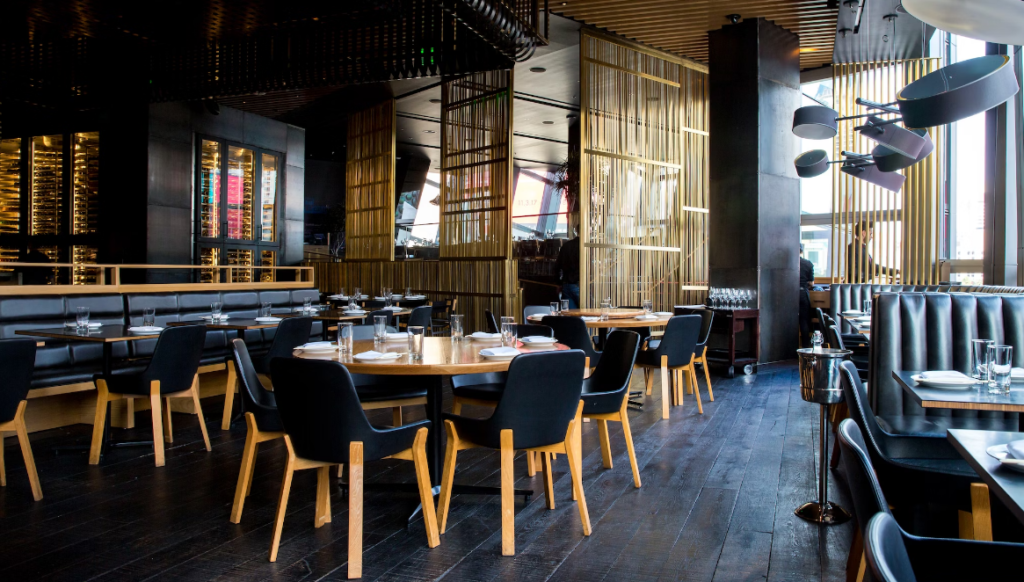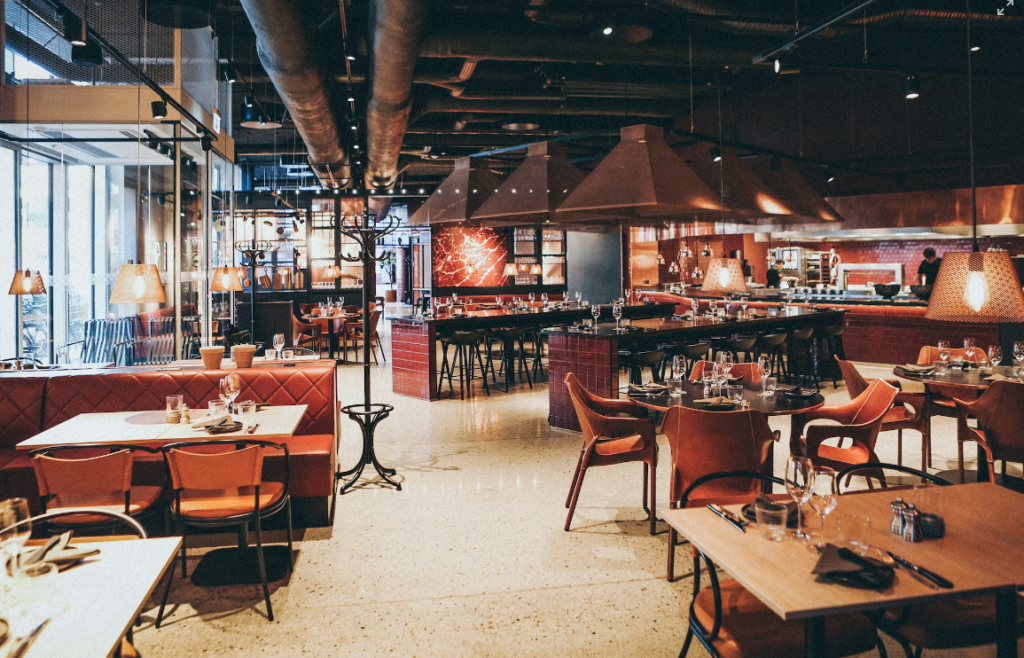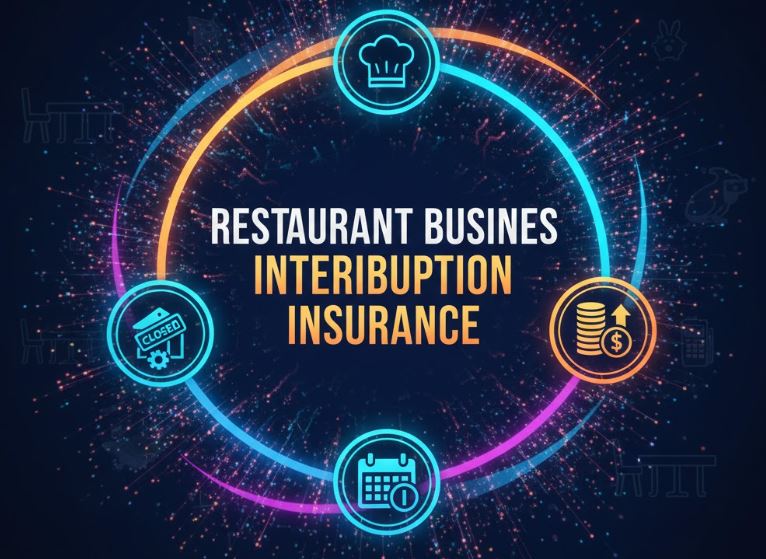Restaurant Business interruption insurance is when an operating a restaurant is a culinary adventure filled with passion and precision. But it’s also a business susceptible to unexpected disruptions. This is where restaurant business interruption insurance steps in, providing financial protection when unforeseen events force your restaurant to temporarily halt operations. In this comprehensive guide, we’ll delve into the world of business interruption coverage for restaurants, understanding its essence, appreciating its significance, and learning how it operates. We’ll also explore some practical tips for maximizing the benefits of this vital insurance.

The Essence of Restaurant Business Interruption Insurance
Demystifying Business Interruption Coverage
Business interruption insurance, often referred to as business income insurance, is a policy designed to safeguard your restaurant’s financial stability when you’re faced with unexpected circumstances that require you to temporarily close your doors, resulting in a loss of income.
Why It’s Essential for Restaurants
For restaurant owners, business interruption coverage is not merely a luxury but a necessity. Unlike many other businesses, restaurants have unique vulnerabilities, making this insurance all the more crucial:
- Reliance on Foot Traffic: Restaurants heavily depend on foot traffic and patronage. When you’re forced to close temporarily, the financial impact can be significant due to lost revenue.
- Perishable Inventory: Restaurants stock perishable ingredients, and any disruption can lead to substantial financial losses due to spoilage.
- Fixed Operational Costs: Operating costs like rent, salaries, and utilities continue even when your restaurant is temporarily closed. Business interruption coverage helps offset these ongoing expenses.
- Reputation Management: Closure due to unexpected events can impact your restaurant’s reputation. Swift recovery is vital to maintain customer trust and loyalty.
How Restaurant Business Interruption Coverage Works
Understanding the mechanics of business interruption coverage is key to making informed decisions. Here’s a rundown of how it works:
1. Triggering occurrences: Specific occurrences, such as fires, natural disasters, or government-mandated closures due to public health emergencies, generally activate business interruption coverage.
2. Coverage Duration: The coverage period starts when the triggering event occurs and ends when your restaurant resumes operations or reaches the maximum indemnity period specified in your policy.
3. Compensation for Income Loss: Your insurer will compensate you for the income you would have earned during the closure period. This includes lost revenue and ongoing fixed expenses, such as rent, payroll, and utilities.
4. Handling Extra Expenses: In some cases, you may incur additional expenses to expedite the reopening process. Business interruption coverage can help cover these extra costs.
5. Policy Limits: Policies have limits on the amount of coverage provided. It’s important to evaluate whether these limits align with your restaurant’s financial needs during a closure.

Tips for Maximizing Business Interruption Coverage
Securing the right business interruption coverage and making the most of it requires careful planning and attention to detail. Here are some practical strategies:
1. Risk Assessment: Identify potential risks and hazards that could disrupt your restaurant’s operations. This assessment will help you choose the most suitable coverage.
2. Policy Review: Thoroughly review your business interruption policy. Pay close attention to coverage triggers, waiting periods, indemnity periods, and coverage limits.
3. Financial Documentation: Keep meticulous financial records, including income statements and expense reports. These records are crucial when filing a claim.
4. Seek Expert Advice: Consult with an experienced insurance agent or broker who specializes in the restaurant industry. They can provide valuable insights and guidance.
5. Business Continuity Planning: Develop a comprehensive business continuity plan. This should outline steps for minimizing downtime and mitigating financial losses during an interruption.
6. Regular Policy Updates: As your restaurant evolves, revisit your insurance coverage periodically to ensure it aligns with your changing needs.
Dispelling Common Misconceptions
Misunderstandings about business interruption coverage can lead to misconceptions. Here are a few common ones:
- Pandemic Coverage: Standard business interruption policies typically do not cover pandemics. However, some insurers offer specialized pandemic coverage.
- Government-Induced Closures: While some policies may cover government-mandated closures, not all do. Review your policy carefully to understand its stance on this issue.
- Physical Damage Requirement: Business interruption coverage doesn’t always require physical property damage. It can be triggered by various events, including power outages or civil authority orders.
Conclusion
In the world of restaurant ownership, business interruption coverage is your financial safety net. It ensures that when unexpected events threaten to disrupt your business, you have the support you need to weather the storm and emerge stronger. By understanding the intricacies of this essential insurance, reviewing your policy diligently, and planning proactively, you can protect your restaurant’s financial health. You’ll continue to delight diners with your culinary creations, irrespective of the challenges that may arise, and ensure the enduring success of your culinary venture.
FAQs
- What is Restaurant Business Interruption Insurance?
Restaurant Business Interruption Insurance covers lost income and ongoing expenses if your restaurant is temporarily unable to operate due to events like fire, flood, or equipment breakdown. - Who needs this type of insurance?
Any restaurant owner who relies on steady revenue should consider it. It protects against unexpected closures that could impact payroll, rent, or supplier payments. - How much does Restaurant Business Interruption Insurance cost?
Premiums vary by restaurant size, location, and coverage amount. Small restaurants may pay $500–$1,500 annually, while larger establishments with higher revenue could pay more. - What does it typically cover?
Coverage usually includes lost income, fixed operating expenses, payroll, taxes, and sometimes extra costs to reopen or relocate the restaurant. - How do I file a claim?
Contact your insurance provider immediately after the incident. Provide documentation such as financial statements, proof of loss, and photos of damage. The insurer evaluates the claim and reimburses eligible losses according to your policy.



